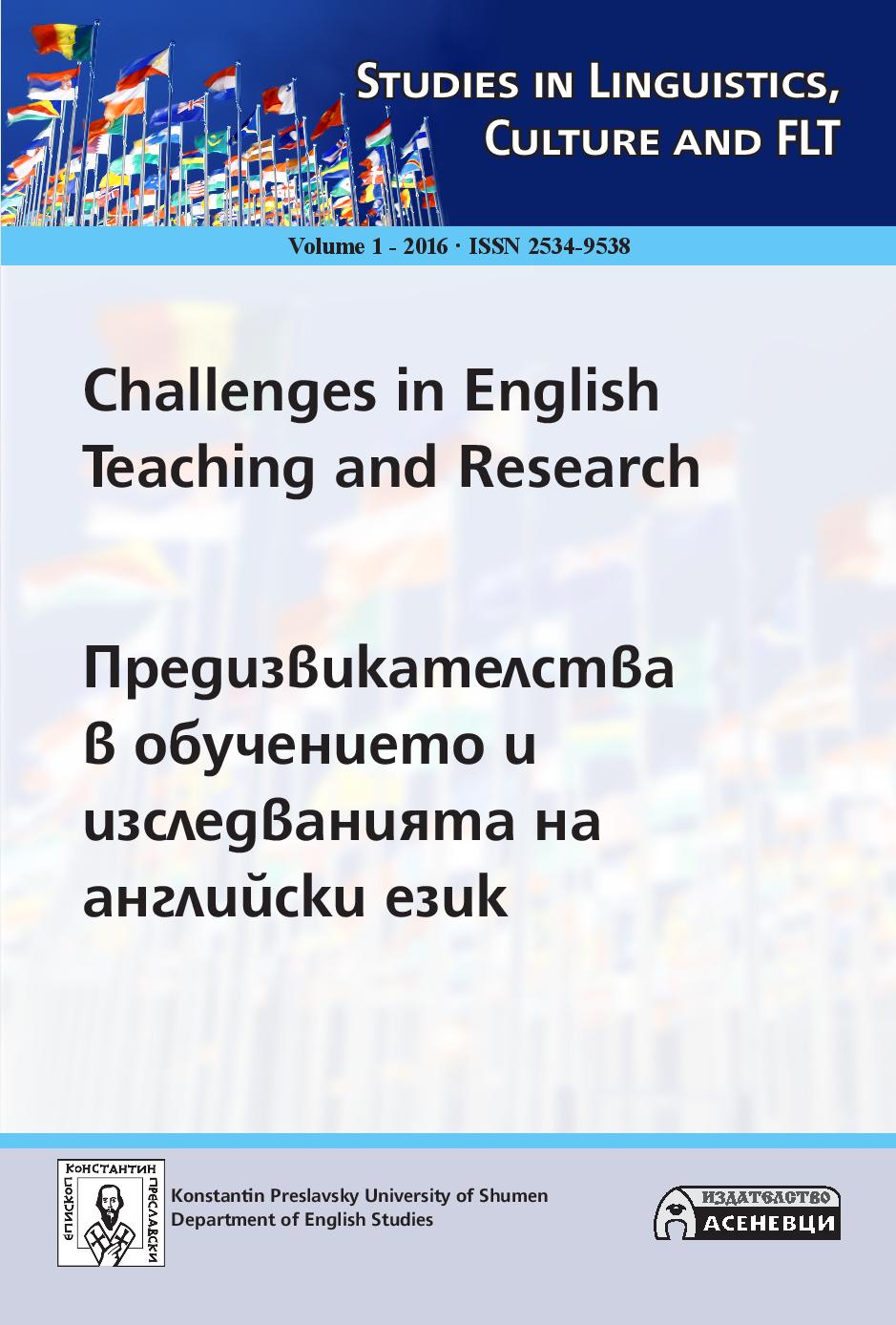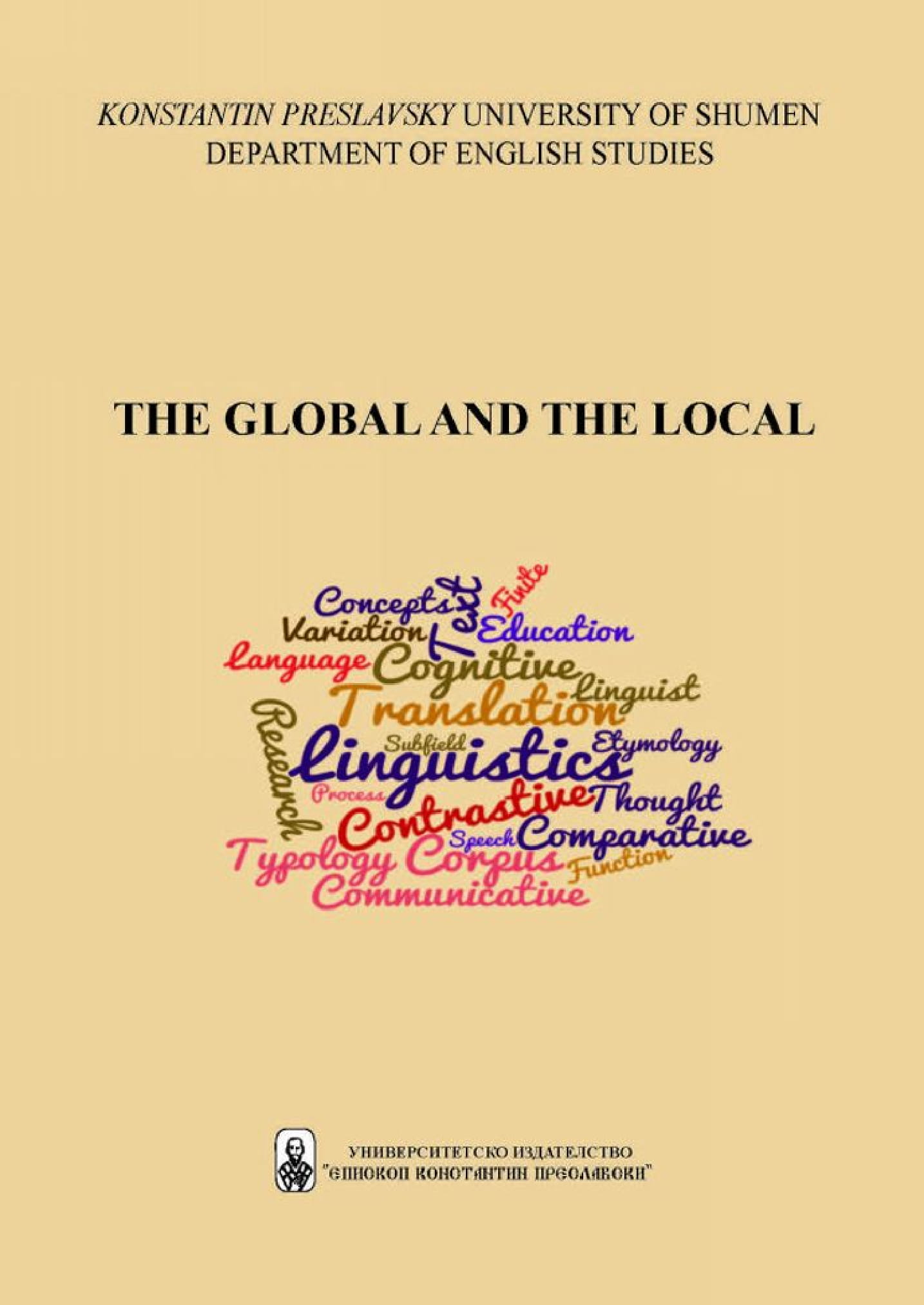
Preface or foreword
The preface provides an overview of the main topics discussed in the volume dedicated to the Challenges in English teaching and research.
More...We kindly inform you that, as long as the subject affiliation of our 300.000+ articles is in progress, you might get unsufficient or no results on your third level or second level search. In this case, please broaden your search criteria.

The preface provides an overview of the main topics discussed in the volume dedicated to the Challenges in English teaching and research.
More...
The emergence of translation studies as an independent discipline contributed to the development of the pedagogy of translation included in a number of higher education programmes. Due to its unique status as a creative and aesthetic product, literary text and its translation into a foreign language and culture deserve a comprehensive method which consists of a balance of theory and practice of literary translation. This paper deals with how such a balance should be established in the teaching of literary translation to the future translators of literature in higher education programmes.
More...
This is a corpus-driven analysis which aims at highlighting the complex behavior of V+eye(s) collocation (1372 occurrences) drawn from the BNC, more specifically from Kilgarriff’s WordSketch of the lemma EYE. Statistical scores are used to identify patterns of use in relation to relative frequency. As a result, some monovalent, divalent, and trivalent valency constructions are described. Such observations have important implications both for future research of language use as well as for foreign language learning and teaching.
More...
This article studies the phrasal verbs (PV) widely used in contemporary English . They are challenging to foreign language learners not only because they are numerous but also with their multiple meanings. Polysemous phrasal verbs are seen from a new perspective with the development of cognitive linguistics. Researchers apply the cognitive principles to arrange them in systematic groups and to prove that their meanings are not randomly chosen but motivated. The present study focuses on phrasal verbs with OFF and organizes their meanings in a radial network related to one core, invariant meaning. The particle encodes specific conceptualizations of spatial relations non-native speakers of English are unaware of. The article provides some suggestions to teaching PVs using a cognitive-based approach to help EFL learners memorize phrasal verbs more efficiently.
More...
The paper studies the collocations formed by ‘absolutely’ used as an adverbial intensifier for modifying adjectives in a corpus of Letters to the Editor, published in British and Bulgarian newspapers, and the BNC. The results of the study show the similarities between the collocations of ‘absolutely’ in English and Bulgarian as well as the resemblances in the choice of a syntactic position of the modified adjectives in both languages.
More...
The paper deals with neologisms based on proper names. It traces the main mechanisms by which such neologisms are formed, namely metonymic shift of meaning, affixation and blending. The creation and stability of neologisms depends on factors such as the cultural and political context. Examples in support of the abovementioned statements are provided in the paper.
More...
Teaching a subject in a foreign language requires a specialist pedagogical expertise from both subject and language teachers whose collaboration is vital for achieving success in CLIL classrooms. Different models of collaboration between teachers in class might be used and experimented with in different lessons, so that the most suitable models be found for each specific teaching and learning context. The article discusses some issues and good practices in teacher collaboration, lesson planning and team teaching in different CLIL contexts. The discussion is based on lesson plan analysis and lesson observations conducted in four European countries under an Erasmus+ project.
More...
The article aims to describe the application of Suggestology in the pedagogical practice – Suggestopedia/Reservopedia. An overview of “suggestion” as a communicative factor and as a psychological basis for the science of Suggestology is presente together with the main principles, means and laws of Suggestopedia. Some characteristics of the suggestopedic textbook and my work in remodelling the original textbook “Energy for Bulgaria, for the 6-th grade” into a new stopedically adapted version are presented.
More...
The paper deals with the challenges that can be encountered in the English learning classroom in terms of the application of the language resource of substitution. Here our focus is only on the use of the nominal substitute “the same”. The latter presupposes an entire nominal group including any modifying element. The item discussed is presented by examples which are translated into Bulgarian and analyzed in terms of the projected items that appear in place of “the same”. In Bulgarian it is commonly illustrated by pronominalzation and sometimes by synonimization which might be challenging for English language learners.
More...
The following article provides a brief overview of the specificities of the processes of reading and comprehension as a starting point for a discussion of the 8 reading comprehension strategies deemed most successful. Furthermore, it provides a list of practical guidelines for the application of each of these strategies.
More...
The paper discusses some basic social factors that shape language use and reflect cultural and behavioral traits characteristic of the particular speech community. The study is based on a corpus extracted from the BNC of the shake_hand(s) collocation. Social meaning is found in the variables of setting and social context participants (who is talking to whom), purpose and function of the interaction, etc. It can be measured along scales of power, familiarity, social status, etc. Basic linguistic features and devices are discussed: pre- and post-modification in NP structure, use of reference to people, of adverb and adverbial expressions. Sentence/clause types are also addressed.
More...
The aim of this study is to examine the nature and current status of nonformal education in general, to examine options for its implementation and integration with the traditional forms of education in Bulgaria. To better understand the current situation in Bulgaria, I have conducted a smallscale research on teachers’ and students’ awareness of nonformal education, the tools and study options it offers them, as well as the teachers’ and students’ attitudes and willingness to impart these tools and software in the education process.
More...


A student’s attempt at creative writing
More...

A student’s attempt at creative writing
More...

